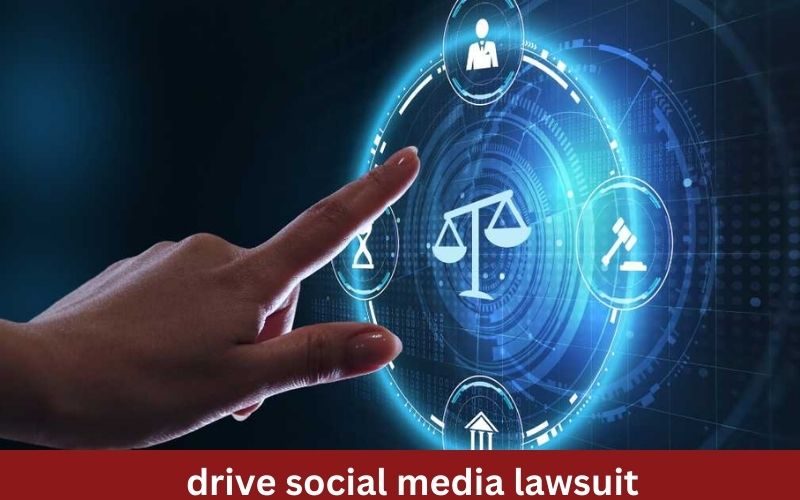The rise of drive social media lawsuit has revolutionized communication and interaction. However, with this growth comes a new wave of legal challenges. Social media platforms have become breeding grounds for a variety of lawsuits, ranging from defamation and copyright infringement to privacy violations and harassment. Understanding the legal landscape of social media lawsuits is crucial for individuals and businesses alike.
Common Types of Social Media Lawsuits
- Defamation: False statements that damage a person’s reputation can lead to defamation lawsuits. Social media platforms can be a breeding ground for defamatory comments, and individuals can be held liable for their posts.
- Copyright Infringement: Sharing copyrighted material without permission can result in copyright infringement lawsuits. This includes unauthorized use of photos, videos, or text.
- Privacy Violations: Social media users often share personal information online, which can raise privacy concerns. Unauthorized disclosure of private information can lead to privacy lawsuits.
- Harassment and Cyberbullying: Online harassment and cyberbullying can have severe consequences. Victims may seek legal remedies for emotional distress or other damages.
Key Elements of Social Media Lawsuits
- Jurisdiction: The court that has the authority to hear a social media lawsuit depends on factors such as the location of the parties and the nature of the claim.
- Plaintiff’s Burden of Proof: The plaintiff in a social media lawsuit must prove their case by a preponderance of the evidence. This means that the evidence must be more likely than not to support their claims.
- Defenses: Defendants in social media lawsuits may have various defenses, including truth, fair use, and qualified privilege.
Effective Strategies for Defending Social Media Lawsuits
- Preservation of Evidence: If you are facing a social media lawsuit, it is crucial to preserve all relevant evidence, including screenshots, emails, and social media posts.
- Consult with an Attorney: Seeking legal advice from an attorney experienced in social media law can help you navigate the complexities of these cases.
- Understand the Platform’s Terms of Service: Familiarize yourself with the terms of service of the social media platform involved in the lawsuit. These terms may provide guidance on user conduct and liability.
- Consider Mediation or Arbitration: In some cases, mediation or arbitration may be a more efficient and cost-effective way to resolve a drive social media lawsuit.
Emerging Trends and Challenges
- Deepfakes and AI-Generated Content: The rise of deepfakes and AI-generated content has created new legal challenges, as it can be difficult to prove the authenticity of content and identify the perpetrators.
- Platform Liability: The debate over platform liability for user-generated content continues to evolve. Courts are grappling with the question of whether social media platforms should be held responsible for harmful content posted by their users.
- International Jurisdiction: With the global nature of social media, determining the appropriate jurisdiction for social media lawsuits can be complex, especially when parties are located in different countries.
Ethical Considerations
- Freedom of Speech vs. Harm Reduction: Balancing the right to freedom of speech with the need to protect individuals from harm is a critical ethical issue in social media lawsuits.
- Privacy and Surveillance: The use of surveillance tools and data collection practices by social media platforms raises concerns about privacy and civil liberties.
- Disinformation and Misinformation: The spread of disinformation and misinformation on social media platforms can have serious consequences, both for individuals and society as a whole.
Best Practices for Social Media Users
- Use Privacy Settings: Utilize the privacy settings available on social media platforms to control who can see your information and posts.
- Be Mindful of Content: Think carefully before posting content that could be harmful or offensive.
- Report Harmful Content: If you encounter harmful content on social media, report it to the platform’s moderators.
- Monitor Your Online Reputation: Regularly monitor your online reputation and be prepared to address any negative content.
Emerging Legal Issues
- Right to be Forgotten: The right to be forgotten is a growing legal issue, with individuals seeking to have their personal data removed from the internet.
- Algorithmic Bias: The use of algorithms in social media platforms can raise concerns about bias and discrimination.
- Data Privacy and Security: Protecting user data from breaches and unauthorized access is a critical legal and ethical issue.
Conclusion
Social media lawsuits can have significant consequences for individuals and businesses. By understanding the common types of lawsuits, key elements, and effective defense strategies, you can better protect yourself and your interests in the digital age. Remember, it is always advisable to consult with an attorney to obtain personalized legal advice.




